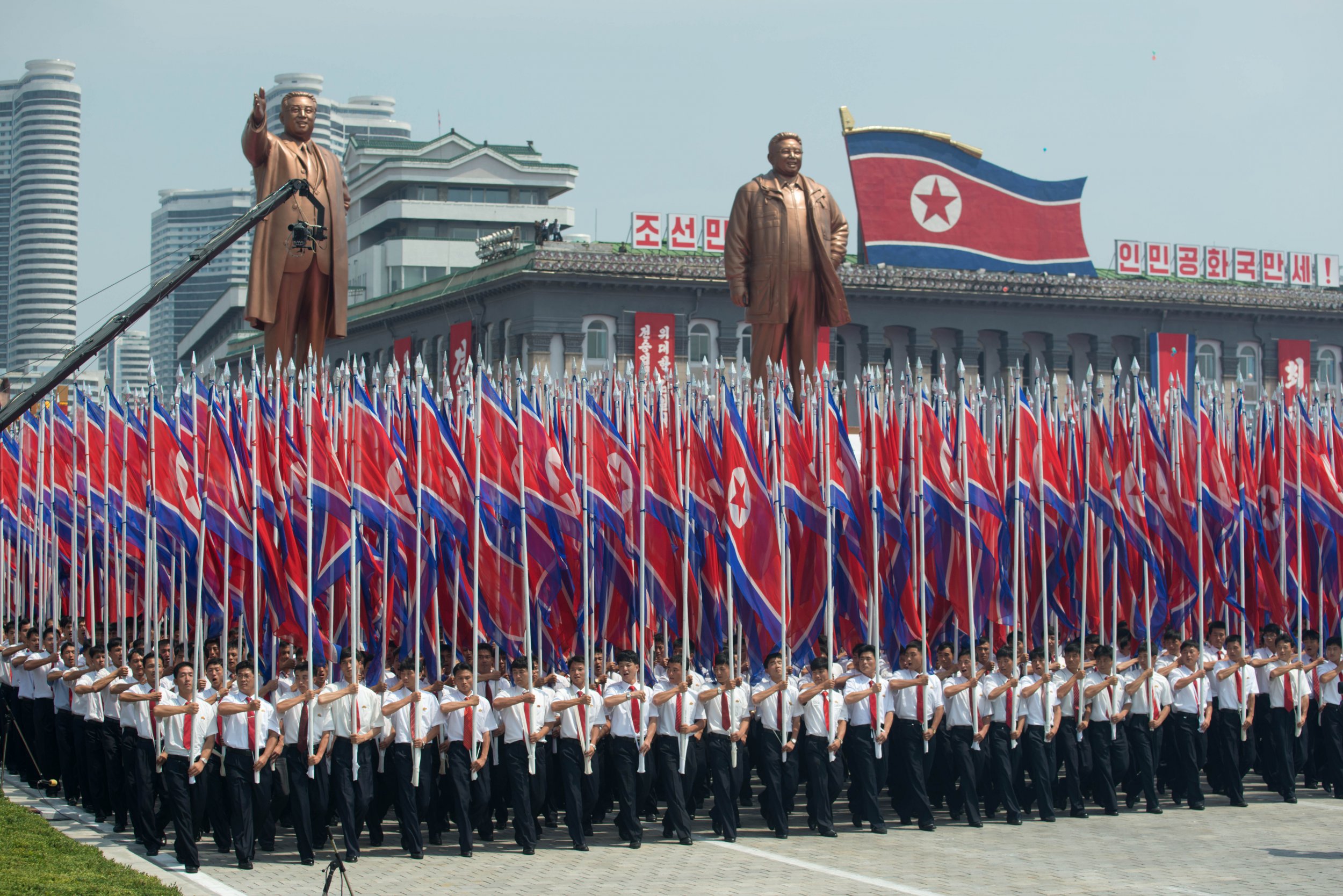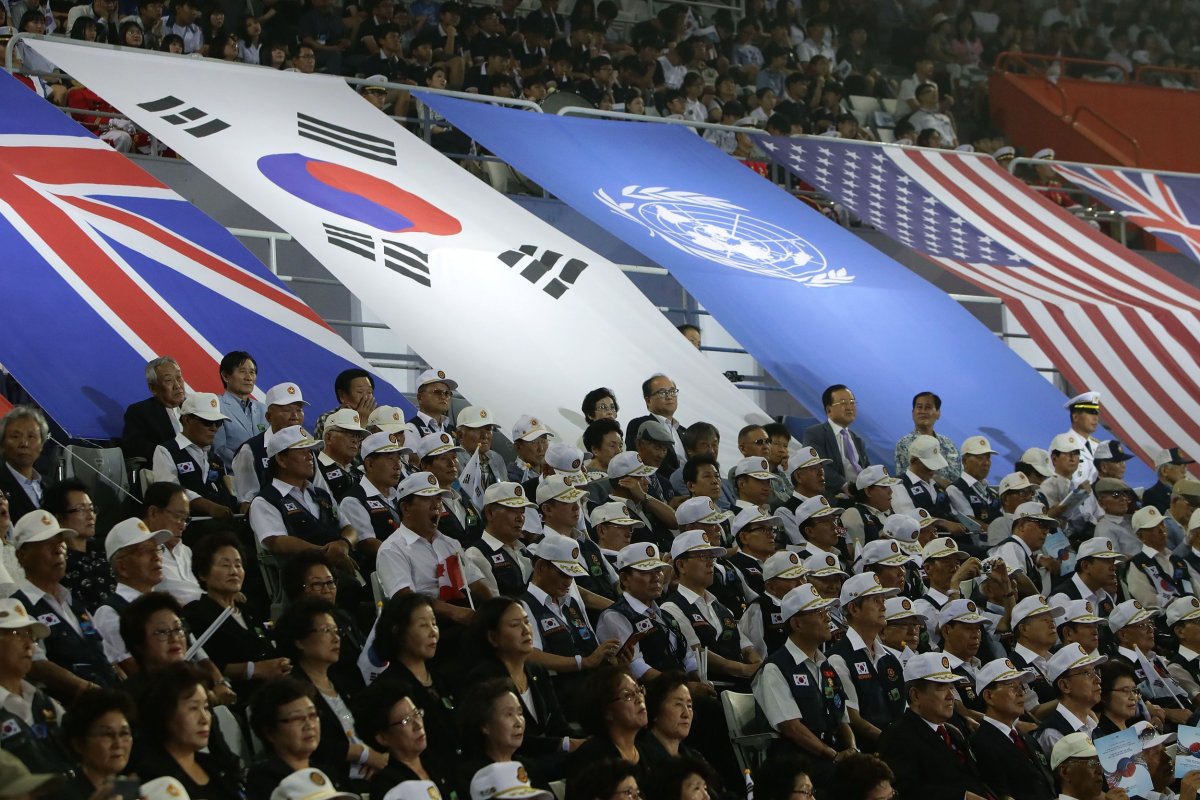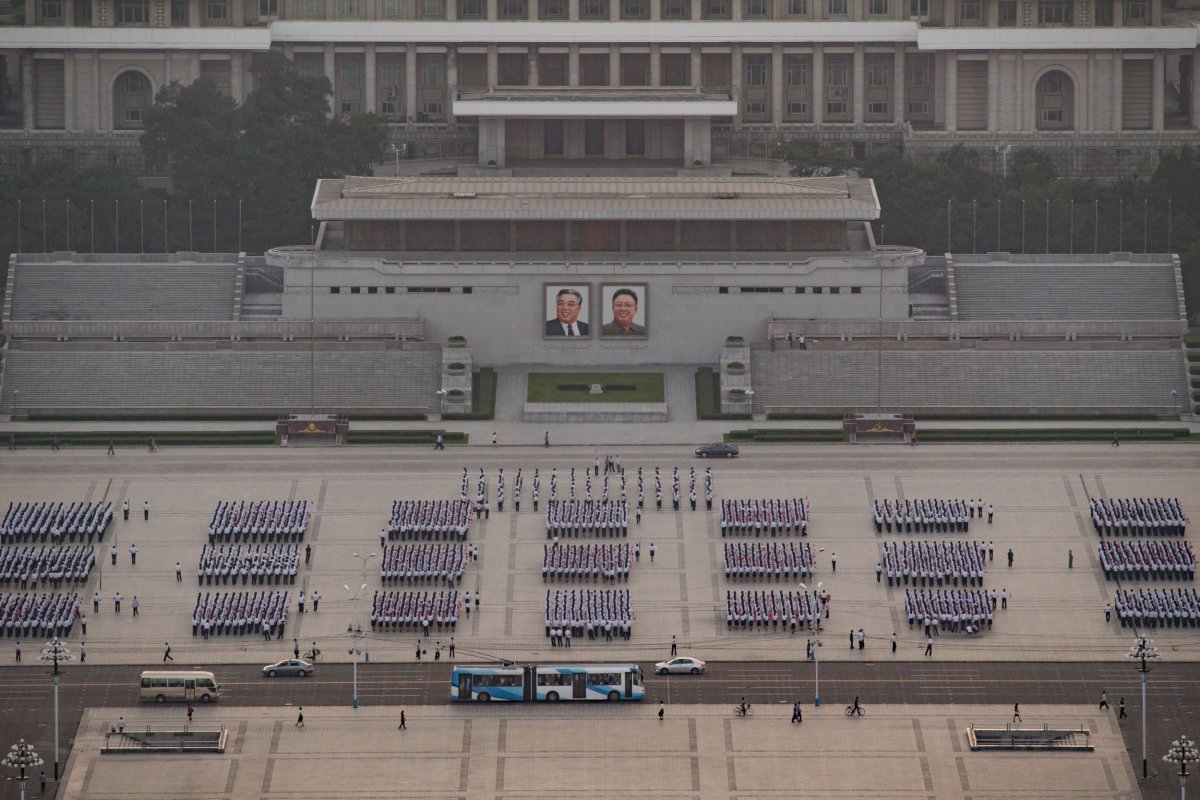
After the war in the Korean Peninsula erupted on June 25, 1950, it took two years, 17 days and 158 meetings to stipulate an armistice to end the confrontation.
It all started when the Soviet Union-backed North Korea invaded the South crossing the 38th parallel, which signaled the countries' border as agreed between Moscow and Washington in 1945, after the defeat of the Japanese empire that had previously colonized the country.
U.S. President Harry Truman entered the war after seeking U.N. Security Council backing—but not the more time-consuming congressional approval—free of opposition from the Soviets, who were boycotting the Council over the admission of the People's Republic of China into the organization.
U.N. Resolution 83 called for member countries to back South Korea to "repel the armed attack and to restore international peace and security in the area", with soldiers from 15 other countries joining the U.S. and South Korea in the United Nations Command. By the time the war ended, nearly 1.8 million Americans had fought in the conflict, nearly 37,000 soldiers died and more than 7,800 remain unaccounted for to this day.

The armistice, signed on July 27, 1953, was never followed by a peace treaty and relations between the Democratic People's Republic of Korea and the Republic of Korea never recovered.
The agreement required the countries to suspend open hostilities, preventing them from entering the air, ground, or sea areas under control of the other; established the Demilitarized Zone as a buffer between the two countries, with newly-formed agencies such as the Military Armistice Commission (MAC) tasked with monitoring adherence to the truce. It also arranged for the release and repatriation of prisoners of war and displaced persons.
The armistice paved the way for a closer military collaboration between the U.S. and South Korea, under the Mutual Defense Treaty signed on October 1, 1953, sanctioning the presence of U.S. troops in South Korea—more than 28,000 at present, according to the White House.
North Korea, instead, progressively strengthened its alliance with Mao Zedong's China, who had sent troops to assist Pyongyang in the war and lost his eldest son, Mao Anying, in a U.S. airstrike. North Korea and China signed the Sino-North Korean Mutual Aid and Cooperation Friendship Treaty in 1961.
Why does North Korea celebrate "Victory Day"?
Despite the "Generalissimo" Kim Il Sung's failure to invade the South, the continued existence of the Democratic People's Republic of Korea under the helm of the Kim family is enough reason for Pyongyang to celebrate the occurrence as its "Victory Day" against "U.S. imperialists" in the "Fatherland Liberation War".
In describing the war, the state media, KCNA, proclaimed it the "fiercest revolutionary war in the world history of wars." Pyongyang traditionally organizes a parade to display its military forces and weapons and to celebrate the Kim dynasty: from Kim Il Sung, the country's first ruler who led the Korean People's Army (KPA) during the war, to his son Kim Jong Il, to his heir and current supreme leader Kim Jong Un.
Reports in North Korean state-sanctioned media started reporting about local remembrance initiatives taking place a few days ahead of the anniversary, such as a performance of wartime songs from the Socialist Women's Union of Korea and from the Union of Agricultural Workers of Korea.

A "forgotten war"?
In the U.S., the Korean war is commonly referred to as the "forgotten war." The war began only five years after the end of World War II, in a place that most Americans had heard little about.
"A lot of veterans returned home to indifference," Col. David J. Clark, executive director, DOD 60th Anniversary of the Korean War Commemoration committee, told the U.S. Army publication in 2012. "People didn't know they had served in Korea, and didn't really care."
A common quip at the time was that the soldiers "died for a tie," a comment which President Barack Obama rejected in a speech he made on the 60th anniversary of the armistice. "That war was no tie" he said "Let it be said that Korea was the first battle where freedom held its ground and free peoples refused to yield."
It wasn't until 1988 that the first memorial dedicated to those who served in the war was built in the U.S., in Chicago. Seven years later, the Korean War Veterans Memorial in Washington D.C. opened on July 27, 1995, to mark the 42nd armistice day. In 2016, President Obama signed into law a bill allowing for the construction of a wall of remembrance at the site bearing a list of names of members of the U.S. army who died in the war.
Uncommon Knowledge
Newsweek is committed to challenging conventional wisdom and finding connections in the search for common ground.
Newsweek is committed to challenging conventional wisdom and finding connections in the search for common ground.
About the writer
Sofia Lotto Persio reports mainly on Asia and gender issues for Newsweek. She previously covered international affairs with a specific ... Read more
To read how Newsweek uses AI as a newsroom tool, Click here.








